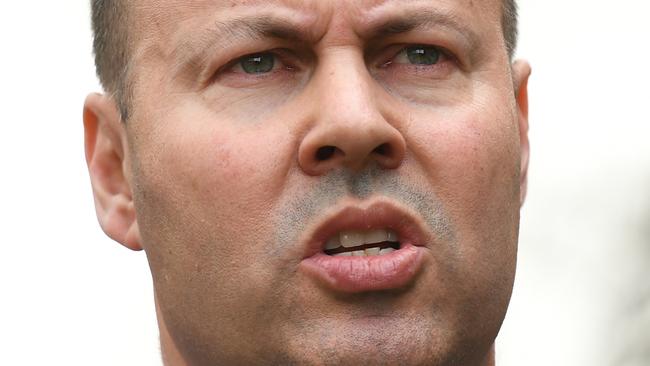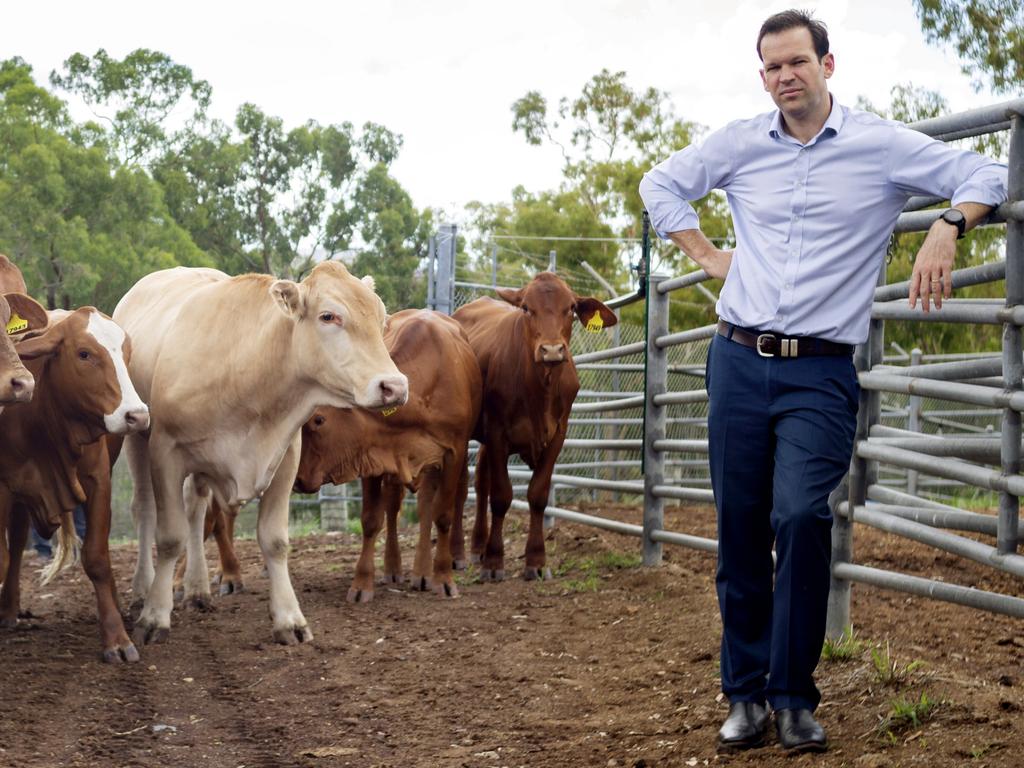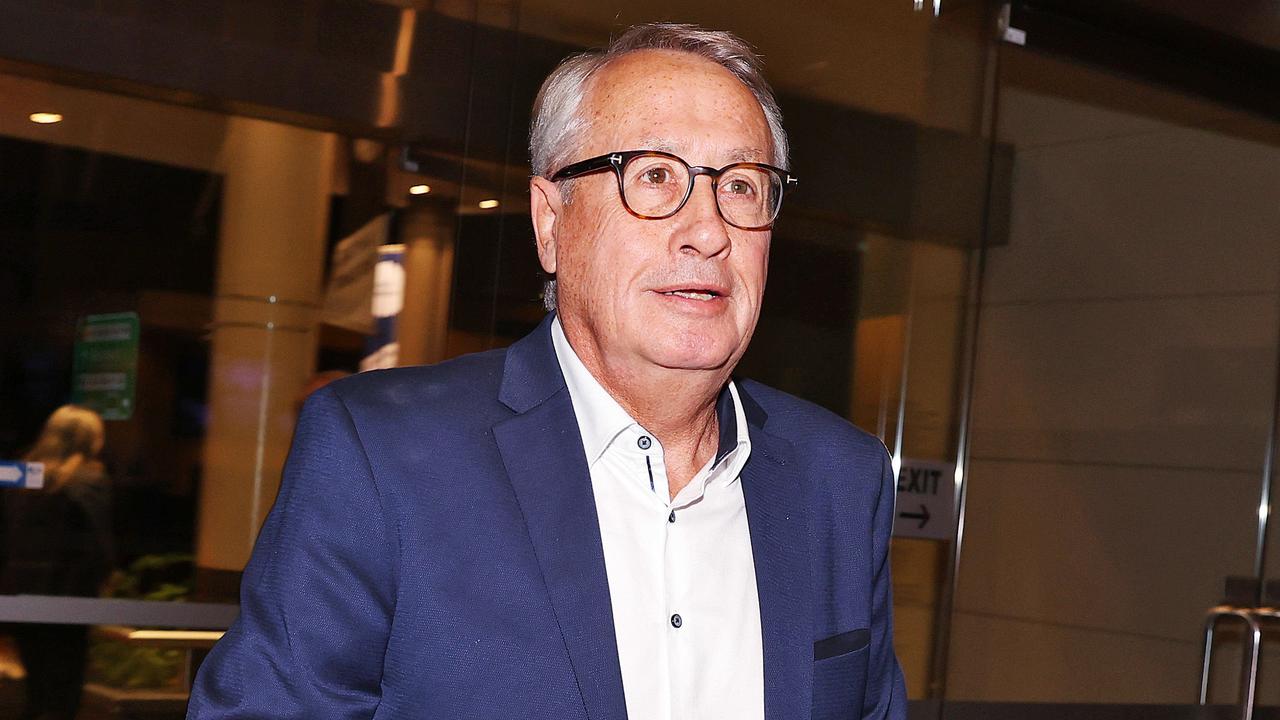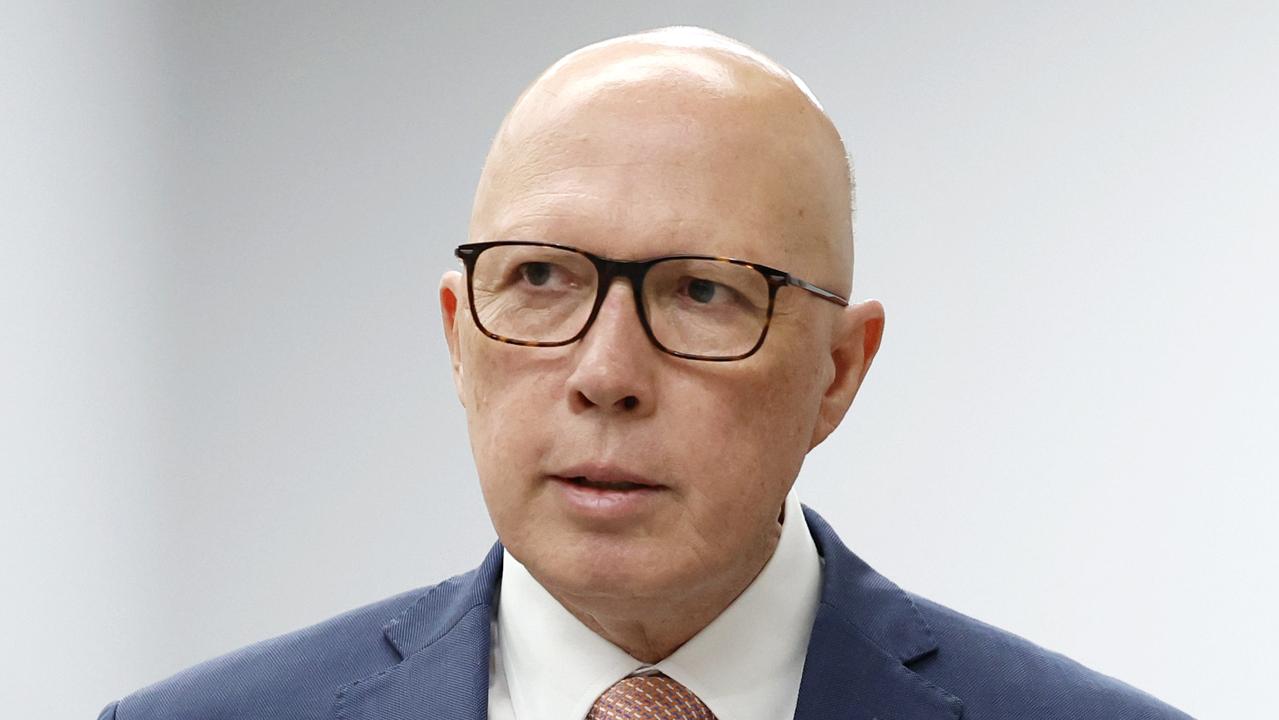Tax hike on gas and oil on cards to save surplus
The Morrison government is looking at raising the $1.4bn-a-year tax on the gas industry in a bid to replace falling revenue and protect future surpluses.

The Morrison government is looking at raising the $1.4bn-a-year tax on the gas industry in a bid to replace falling revenue and protect future budget surpluses.
Federal Treasury is considering lifting the taxes on Australia’s liquefied natural gas producers — now the largest exporters of LNG in the world — as income from the 40-year-old tax is forecast to fall by $450m over the four-year budget estimates.
Treasury is also working on recasting the tax, which has raised more than $100bn since it started, because the industry has in large part shifted from Tasmanian Bass Strait oil production to LNG production in Western Australia’s North-West Shelf. This means many projects pay no petroleum resource rent tax.
Gas producers paid $1.16bn in PRRT in 2017-18. Tax payments peaked in 2001 at $2.4bn but have been in decline ever since.
The Coalition pledge from Scott Morrison and Josh Frydenberg to deliver a budget surplus this year is under threat from reduced growth forecasts, falling tax revenue and the economic cost of drought, bushfires and the coronavirus.
Major LNG producers in Western Australia are alarmed at the prospect of an increase in their tax burden and the impact of tax collection changes on existing multi-billion-dollar projects.
Treasury is expected to complete its review and make recommendations for change, which could include aspects of retrospectivity, within weeks.
It is possible the tight deadline will not allow the changes to be squeezed into the May budget. But significant changes to the gas tax would help protect budget surpluses beyond the four-year outlook and guarantee a surplus this year or the next for the Coalition would not be a “one-off”. There have also been calls from MPs to use resource taxes to boost regional spending because most of the revenue is raised in remote areas.
Treasurer Josh Frydenberg on Saturday said the review dated back to November 2018 and would not be dealt with by the government until after the budget.
As I said last night, speculation in the @australian around gas regulations is wrong. The review referred to was announced in November 2018 and will not be back to Government till after this year’s Budget.
— Josh Frydenberg (@JoshFrydenberg) February 7, 2020
Australian Petroleum Production & Exploration Association executive director Andrew McConville said the crucial role of gas in Australia’s economy should not be jeopardised for short-term budget gain.
“Now is not the time to compromise an industry which is going to help address the government’s emissions-reduction challenge, while ensuring reliable, affordable and sustainable energy — and supporting thousands of jobs and billions of dollars of investment, largely in regional areas,” Mr McConville said.
“As the Prime Minister said last week, there is no credible energy transition plan that does not involve the greater use of gas. We shouldn’t put that at risk for short-term budget relief.
“The risk created by government looking to tax its way out of short-term budget pressures creates long-term problems for the nation.”
The Prime Minister, the Treasurer and Reserve Bank governor Philip Lowe have all warned that the long-term economic impact of the drought, the direct cost of bushfire damage and disruption caused by the coronavirus on Chinese tourism and trade are threatening economic growth.
On Friday, Dr Lowe said the economic risk of the coronavirus was greater than SARS and “it is possible the number of cases escalates and so does the interruption to China’s economy”.
Gas producers are concerned the Morrison government will attempt similar changes to resource rent taxes as the Rudd government did in 2010 when it tried to put an extra $10bn resource super-profits tax on mining companies to fund spending projects. In the 2010 budget Labor said the extra revenue would be used to pay for regional projects across the nation.
A ferocious campaign against the proposed tax from the Minerals Council of Australia derailed the levy and played a part in the removal of Kevin Rudd as prime minister.
His successor Julia Gillard substantially changed the tax when she become prime minister and the final tax ended up collecting only a few thousand dollars rather than the proposed $10bn.
As part of the review of the petroleum resource rent tax — introduced under the Hawke Labor government in 1987 — the Australian Taxation Office found its revenue peaked at $2.4bn in 2001 and had been in decline since.
The ATO told Treasury part of the reason for the decline was the “significant tax shields” now available to gas producers from the original scheme aimed at oil producers.
An APPEA spokesman said on Friday that PRRT payments in 2017-18 were $1.16bn and it was expected that the 2018-19 payments would be similar.
“In terms of future trends, we expect the amount to grow as tax deductions decline for some projects,” the spokesman said.
“In overall terms over the past decade, (including PRRT) the industry has made more than $77bn in total payments to governments, with $149bn contributed since 1985.”
The Treasury proposal on changes to the gas tax follows a request from Mr Morrison when he was treasurer for a review of the PRRT by Michael Callaghan, former chief of staff to then Liberal treasurer Peter Costello, to ensure the Australian public was getting an appropriate dividend from natural gas reserves.
The Callaghan review concluded that: “While the PRRT remains the preferred way to achieve a fair return to the community for the extraction of petroleum resources without discouraging investment, changes should be made to PRRT arrangements to make them more compatible with the developments that have taken place in the Australian oil and gas industry.”








To join the conversation, please log in. Don't have an account? Register
Join the conversation, you are commenting as Logout